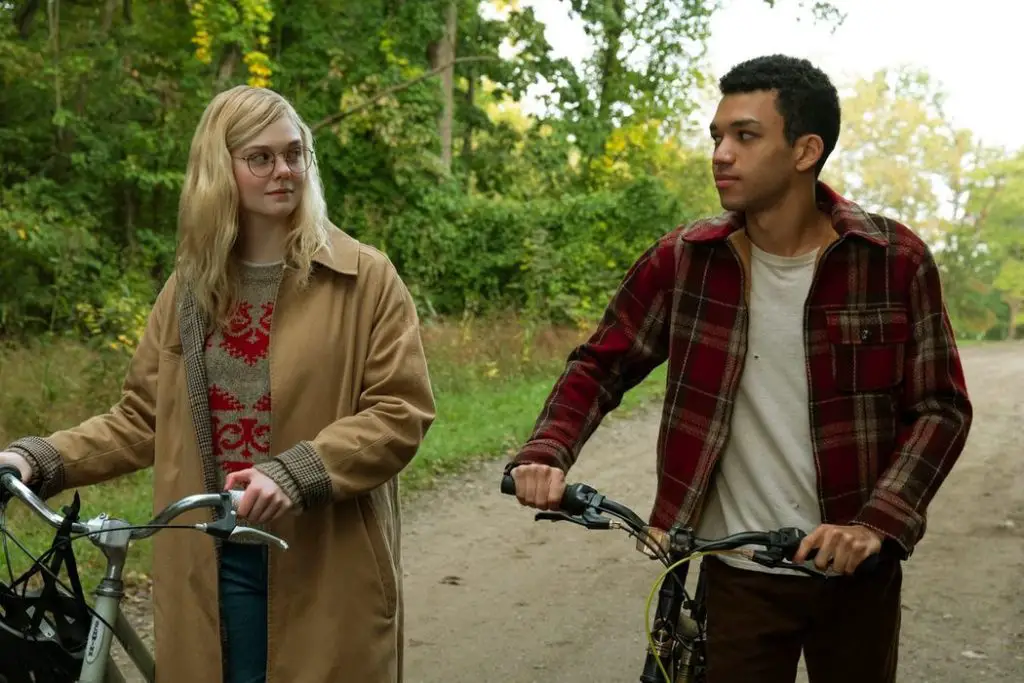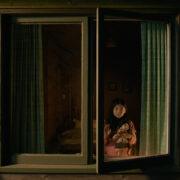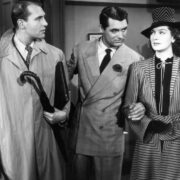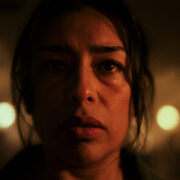ALL THE BRIGHT PLACES: Mishandled Tragedy

Aspiring journalist and film critic based in the SF Bay…
Netflix has a bad track record with depicting mental illness and suicide. Its originals that approach the topic have been accused of trivializing the issues and depicting them dishonestly (most infamously with the 13 Reasons Why series). The latest addition to their originals library, All The Bright Places, tracks the romance of Violet (Elle Fanning) and Finch (Justice Smith) a year after Violet’s sister passed away in a car crash, leaving Violet deeply traumatized and grappling with survivor’s guilt. Though Finch is struggling with mental illness himself, he aids Violet through the healing process as their relationship blossoms, while his own troubles grow more serious.
Based off the 2015 namesake novel by Jennifer Niven, a book with earnest intentions but serious flaws, the movie had the potential to be a truly special Netflix original, a feature about teens and marketed toward teens that explores mental illness and suicide in a respectful, non-exploitative manner. But the film has little interest in correcting the book’s mistakes. Instead, it leans into them.
Justice Smith Shines
The introduction to our protagonists is solemn; Violet standing on a bridge’s edge, one step from leaping off, and Finch (a complete stranger at the time) stepping up beside her and extending a hand, urging her to step away. It’s an appropriate introduction to the duo and their respective backgrounds, and especially for Finch, who Justice Smith portrays with apparent heart and sincerity.

In the film’s source material, Finch is written with bipolar disorder, an illness that is not explicitly stated in the film but is alluded to in Finch’s violent outbursts and turbulent emotions. He undulates between emotional extremes without ever feeling disingenuine, every toothy smile and heart-wrenching scream given with his full body. His presence lights up the screen and carries the entire film throughout its saccharine storyline, as he navigates the clumsy screenplay to the best of his ability.
Romanticizing Tragedy
However, as much as Smith breathes life into the film, Fanning drags it down. She’s lifeless, with vacant eyes and false tears expressing her grief, completely wooden when alone. She is at her best when on screen with Smith, but unfortunately, we see much more of her than we do of him. Every lengthy scene with Violet interacting with her parents and ruminating on the loss of her sister is imbalanced with sparsely scattered scenes of Finch interacting with his sister and irregular moments of anger and sadness. When Finch disappears from Violet’s life during several periods in the film, he disappears from the audience’s view as well. Violet’s grief is explored and elaborated on to a much greater extent than Finch’s mental illness, which only worsens the film’s biggest flaw: its ending.

It’s clear from the very beginning that this is meant to be a “sad story”, soaked in a cloying score that blares during every slightly sentimental moment, and cinematography that lingers on the characters faces during their sparks of bliss in a bittersweet manner, suggesting that this happiness will be very brief. But this sadness stems from a very specific tragedy: caring for someone so much you forget to care about yourself. It’s nothing to be romanticized, but this film does exactly that with its ending.
Finch’s disorder and Violet’s depression are portrayed with compassion and respect, perhaps resonating with certain audiences, but the conclusion of their story negates that. It’s a disservice to teen audiences who have longed for an honest depiction of these serious issues. To have a sincere exploration of mental illness and suicide, you cannot use them as devices to enhance the tragic nature of a central romance. Sadly, that’s exactly what this film does.
Do you think All The Bright Places is a successful adaptation of its source material? Share in the comments!
All The Bright Places is now streaming on Netflix in all countries.
Does content like this matter to you?
Become a Member and support film journalism. Unlock access to all of Film Inquiry`s great articles. Join a community of like-minded readers who are passionate about cinema - get access to our private members Network, give back to independent filmmakers, and more.
Aspiring journalist and film critic based in the SF Bay Area. Loves Guillermo Del Toro, Bong Joon-Ho, and any film with an impromptu dance number.













